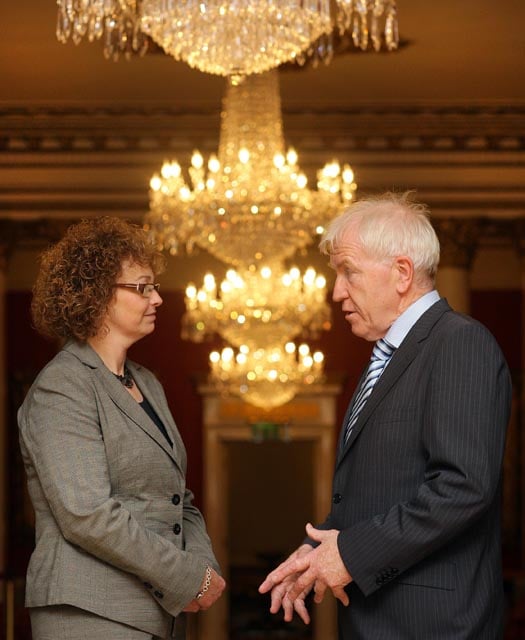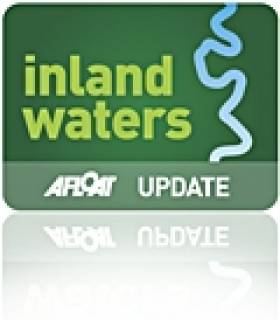Displaying items by tag: Ní Chuilín
Ministers Welcome EU Partners on Inland Waters Initiative
Minister Jimmy Deenihan TD Dept of Arts, Heritage and the Gaeltacht (DAHG) and Minister Carál Ní Chuilín, MLA, Department of Culture, Arts and Leisure(DCAL) met delegates from 12 EU countries, Norway and Serbia at a dinner this evening in Dublin Castle to mark the Waterways Forward Masterclasses taking place in Dublin and Enniskillen on the 14th and 15th September.
Facilitated by Waterways Ireland the Masterclasses take place as part of the Waterways Forward INTERREG IVC Project. The Waterways Forward project is focused on the 'enhancement of the management and the boosting of socio-economic development of regional inland waterways and their adjacent waterways' right across Europe.
Department of Arts, Heritage and the Gaeltacht Minister Jimmy Deenihan, T.D, stated
"The future of the waterways both in Ireland and other countries is of huge importance to the economy of all Europe. The meeting is dealing with difficult subjects and I am looking forward to receiving the conference recommendations for an enhanced use and management of the inland waterways for the benefits of all involved."

Carál Ní Chuilín Minister for Culture, Arts and Leisure in the Northern Assembly and Jimmy Deenihan TD Minister for Arts, Heritage and the Gaeltacht pictured speaking at the 4th Interregional meeting of the Waterways forward group at Dublin Castle last night Photo: Marc O'Sullivan
Department of Culture, Arts and Leisure Minister, Carál Ní Chuilín, said: "Ireland has some of the most impressive waterways on offer. From the Grand Canal in Dublin to Lough Erne in Enniskillen, Inland waterways have the potential to better connect the economic structures on this island. In the current economic climate such connections can only impact positively on increasing the contribution made by this sector to the all-island economy. The diversity of our waterways and the work being carried out by Waterways Ireland will not fail to impress. This conference will allow Waterways Ireland to plan in a strategic way for future investment in the waterways to improve their navigational, recreation and tourism potential for the benefit of all waterway users."
The Masterclasses will address issues around the sustainable development of inland waterways and the potential impact of climate change on regional inland waterways across Europe.
Lead by the Dutch Recreational Waterways Foundation, the INTERREG IVC Project runs from January 2010 to December 2012 and has a total budget of just over €2.8 million. The Masterclasses are one of a series of meetings, conferences and research projects being undertaken by the partners with the aim of sharing best practice, developing integrated, tailor made governance structures & models and facilitating increased cooperation at EU level.
























































